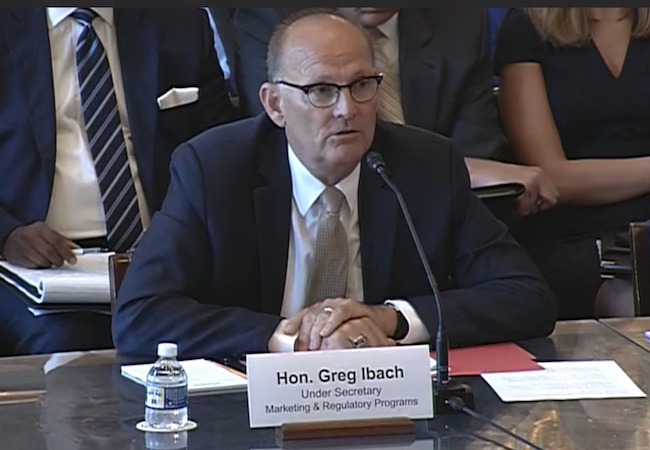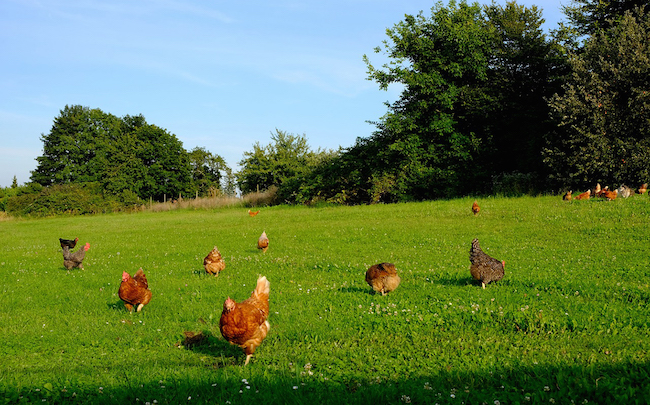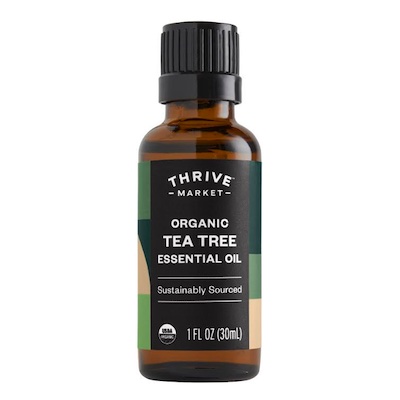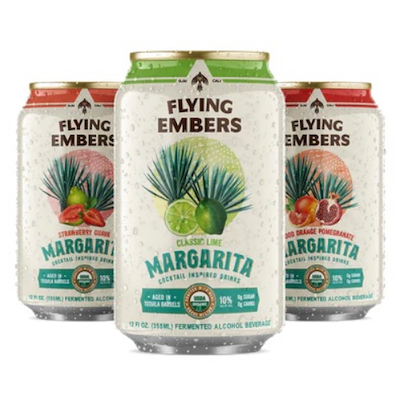
The USDA's Power Grab Threatens the Independence of the National Organic Standards Board
How Organic Insider operates: We accept no advertising, we have no paywalls and we make our newsletters free to everyone because vital information about our industry needs to get out to as many people as possible. Please consider supporting our work, whether you are an individual or a company. Thank you so much.
The one thing that separates the USDA from having complete control over the National Organic Program – and gives the organic community a degree of autonomy over its own future — is the National Organic Standards Board (NOSB).
And if the NOSB were eventually to succumb to being fully controlled by the USDA, it could spell the end of organic as we know it today.
More specifically, there are powerful entities in the organic industry that believe genetic engineering, synthetic biology and cellular meats are the only way to feed the world moving forward. But as we have seen, GMOs have been nothing but a failed promise, and there is no indication that these emerging genetic engineering technologies will prove to be anything different.
Here are two examples we can point to where these technologies are being “sold” to policymakers and the organic community.
At a House Agriculture Subcommittee hearing in 2019, Greg Ibach, the USDA’s former Under Secretary for Marketing and Regulatory Programs, testified that “There is the opportunity to open the discussion to consider whether it is appropriate for some of these new technologies, including gene editing, to be eligible to be used to enhance organic production.”

During ‘The State of Organic & Natural’ keynote presentation at this year’s Natural Products Expo West, we were told that “The only way we are going to meet demand, as a planet, is through cultured meat.” Cultured meat is meat produced from cells, without having to raise or kill animals. This is synthetic biology.
HOW WE GOT HERE
When the National Organic Program was first established, members of the USDA did not have the appropriate expertise in organic farming, as this sector was still in a relatively embryonic state and very far from being mainstream among consumers. Hence, it was decided that a 15-member board, representing various aspects of the organic sector, would make recommendations to the USDA Secretary about processes and ingredients. This is the NOSB.
Unlike every other government advisory board, however, the NOSB is very unique in that it does have statutory authority. The board has the power to judge which materials get added to the National List of Allowed and Prohibited Substances that may or may not be used in organic crop and livestock production.
Appointed by the Secretary of Agriculture and as per OFPA, the NOSB is comprised of 15 members, of which:
– 4 shall be individuals who own or operate an organic farming operation or employees of such individuals.
– 2 shall be individuals who own or operate an organic handling operation or employees of such individuals.
– 1 shall be an individual who owns or operates a retail establishment with significant trade in organic products or employees of such individuals.
– 3 shall be individuals with expertise in areas of environmental protection and resource conservation.
– 3 shall be individuals who represent public interest or consumer interest groups.
– 1 shall be an individual with expertise in the fields of toxicology, ecology or biochemistry.
– 1 shall be an individual who is a certifying agent.
Last month, without prior notice or seemingly reasonable justification, the USDA changed the NOSB’s charter and decided that four of the fifteen seats on the board will now be designated as Special Government Employees (SGEs).
An SGE is an officer or employee who is retained, designated, appointed, or employed to perform temporary duties, with or without compensation. SGEs are recruited for temporary service to the government because they provide outside expertise or experience that might be unavailable among an agency’s regular employees, and they must complete ethics training.
“This is not what Congress envisioned,” said Jay Feldman, executive director of Beyond Pesticides and a former member of the NOSB. “If the USDA is tinkering with our board, they are killing our label and killing the public trust that we have worked so hard to create, when we started from nothing. This is very hurtful, especially since the USDA didn’t create organic. They thought organic was a joke.”
Now, the three individuals with expertise in areas of environmental protection and resource conservation, and the one individual with expertise in the field of toxicology, ecology or biochemistry will be designated as SGEs. What are the implications?
The original spirit of the NOSB was that it would represent the wide range of views of the entire organic community, and it was never intended to be filled with government employees or designees. Hence, the true independence of the board is compromised. SGEs may feel pressure to push an agenda prioritized by the USDA and could possibly face retribution in their day jobs if they do not vote for or promote policy dictated by USDA officials.
Furthermore, the number of hours that SGEs can work on NOSB matters is capped, as SGEs are limited to working 130 days per year. Being a member of the NOSB requires an incredible time commitment, and this could mean that important work may never be completed by SGE board members.
The real concern is that 4 of 15 NOSB members will soon be SGEs, and that number could easily shift to all 15 members of the NOSB.
While the USDA does appoint all NOSB members to the board, this is based on an application process. So, the agency is selecting people based on who has applied for board membership.
Moving forward, all 15 members of the NOSB could be hand-selected by the USDA, and this patina of “independent” board members may be anything but that. Processes and ingredients that are currently not allowed in organic could soon be legal, forever damaging the integrity of the organic seal.
THE USDA WILL HAVE TO ANSWER FOR THIS MOVE
Power grabs, such as this one by USDA but to a lesser degree of impact, have happened in the past.
The NOP changed the Sunset Rule, which now makes it extremely difficult to remove a synthetic ingredient once it has been added to the National List.
Additionally, several years ago, the NOP changed Section 8 of the NOSB charter so that the work agenda must be approved by the NOP Deputy Administrator. This means that the NOSB does not have the full autonomy to set its own work agenda. For example, in the recent past, the NOP Deputy Administrator has quashed debate about hydroponics in organic — one of the most contentious and unresolved areas in our industry — when board members wanted to discuss it.
What is different this time around is that Congress will be seeking answers from the USDA.
Organic Insider reached out to Congressman David Scott (D-GA), who serves as the Chairman of the House Committee on Agriculture, and was told that the committee’s staff is aware of the change and will be asking USDA for further information.
When we reached out to the USDA’s National Organic Program to find out who at the USDA pushed for this change to the charter and why this redesignation was made, a USDA spokesperson told us that it was done based on the “recommendation of the USDA Office of Ethics.” We were not given more detail as to what exactly precipitated this move and whether the current system is not working.
“The independence of the board is eroding. What we will get is less rigorous technical reviews and less attention to the necessary critiques of the USDA that must go on to ensure accountability. There are people within USDA that are threatened by organic, and if they kill the organic label, they are killing our future. There is no other organized, defined and enforced system — other than organic — that will get us out of this environmental and public health crisis that we are now facing,” said Jay Feldman.
This action by the USDA appears to be an arbitrary application of administrative rules, and it is now up to Congress to specify if OFPA intended to make any NOSB member an SGE. We strongly suggest that our readers contact their representatives in Washington, D.C. and ask them.
 |
With gratitude, 
Max Goldberg, Founder |
Quick Hits
* Called f.a.e. — which stands for “for all, everywhere” — Thrive Market has launched its first beauty brand.
* The future of food is in the group chat.
* Great profile of how GoodSAM is upending the food system and providing hope to small organic farmers in Colombia.
* U.S. Senator Patrick Leahy (D-VT) announced that the USDA has awarded $395,201 to NOFA-Vermont to support Farm to School initiatives across the state.
* Rodale Institute gets $3M for a new science center.
* The chemical industry attack machine is in high gear.
* How this company’s organic bed helped it survive the DTC mattress wars.
* The world’s most beautiful restaurants.
New Organic Products
Dark Chocolate and Hazelnut Butter Granola from Love Crunch
The latest offering from Nature's Path Love Crunch is Organic Dark Chocolate and Hazelnut Butter Granola. The organic granola clusters are coated with sustainably sourced hazelnut butter from Turkey and mixed with Fairtrade Italian dark chocolate chunks. Made with 12g of whole grains and only 7g of sugar per serving, the granola is also Non-GMO Project Verified.Tea Tree Essential Oil from Thrive Market
Sustainably sourced from South Africa, the Organic Tea Tree Essential Oil from Thrive Market is extracted using steam distillation from tea tree leaves and twigs, so it stays as pure and unrefined as nature intended. Drop in a diffuser or ceramic burner, apply it topically or take a deep inhale straight from the bottle or through steam.Grass-Fed Milk Chocolate from Hu
Hu has just introduced Organic, Grass-Fed Milk Chocolate, which is the brand’s first candy offering made with dairy. Sweetened with unrefined coconut sugar, the chocolate bars are available in five flavors: Simple; Hazelnut Butter + Crunchy Hazelnut; Cashew Butter; Crunchy Almond + Coconut Flakes and Almond Butter. No sugar alcohols, soy or palm oil.Canned Cocktails from Flying Embers
Flying Embers has launched a new organic line of cocktail-inspired, ready-to-drink, canned alcoholic beverages. The 10% ABV Sparkling Margarita Variety Pack comes in three flavors -- classic lime, blood orange pomegranate and strawberry guava -- while the 8% ABV Sparkling Mojito Variety pack also comes in three flavors -- lime, watermelon and mango.
Weekly News Summaries

Whole Foods Market Co-Founder is Building a Chain of Cafes and Wellness Centers
By Matt Day and Deena Shanker
John Mackey's new venture, Health America, has raised $31M and counts Walter Robb, former co-CEO of Whole Foods Market, as a partner.

U.S. is the World’s Top Organic Grower — and Regulation Violator
On a list of 2021 suspended and revoked operations by country, the U.S. led the list with 43% of the total, followed by Mexico. However, the U.S. also accounts for 63% of the total count of certified operations.

Why One of California’s Most Powerful Wineries is Rebranding as an Organic Company
By Esther Mobley
In order to strengthen its appeal to organic consumers, Fetzer Vineyards — the 19th largest winery in the U.S. — will now be known as Bonterra Organic Estates.

USDA Proposes to Reinstate Organic Animal Welfare Standards
Marking a big win for organic advocates and consumers, the USDA has committed to reinstate the organic animal welfare standards, which had been gutted by the Trump administration.
U.S. Farmers Need Incentives to Grow Organic Grains
By Sycamore May
Organic grain production in the U.S. is growing but not fast enough to meet the organic livestock industry’s needs

Organic Valley grows Cooperative with 51 New Farms
By Benton Smith
Coinciding with its first milk pickups at small organic farms in Vermont, Maine, New York and New Hampshire, Organic Valley announced it added 51 new farms to its cooperative. This was all initiated as a response to news in 2021 that more than 130 dairy farms in the Northeast were losing their contracts with other companies.


An Updated GMO Propaganda Campaign from the FDA
In 2020, just as covid hit, the USDA, EPA and FDA launched a pro-GMO campaign called Feed Your Mind. That program has since been updated.

Eight Food Brands Selected for Whole Foods Accelerator
By Monica Watrous
The program will include a 12-week curriculum, a yearlong mentorship with a Whole Foods Market regional buyer and access to additional supplier benefits to support growth.

Thailand Mandates GMO Declarations in Latest Food Labeling Regulatory Update
By Pearly Neo
Unlike the U.S., the Thai government is serious about keeping its citizens informed about what is in their food.
Want to share this newsletter on social media? You can use this link: Newsletter Link
The material in this newsletter is copyrighted and may be reprinted by permission only. All requests must be in writing. Please use our contact form to request republication rights.
Newsletter Archive
Quick Hits
* Called f.a.e. — which stands for “for all, everywhere” — Thrive Market has launched its first beauty brand.
* The future of food is in the group chat.
* Great profile of how GoodSAM is upending the food system and providing hope to small organic farmers in Colombia.
* U.S. Senator Patrick Leahy (D-VT) announced that the USDA has awarded $395,201 to NOFA-Vermont to support Farm to School initiatives across the state.
* Rodale Institute gets $3M for a new science center.
* The chemical industry attack machine is in high gear.
* How this company’s organic bed helped it survive the DTC mattress wars.
* The world’s most beautiful restaurants.




